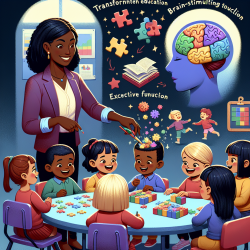The study of temporal fine structure (TFS) sensitivity and concurrent vowel perception offers valuable insights into the auditory processing challenges faced by children with reading disabilities (RD). This research highlights critical differences in auditory stream segregation abilities between children with RD and their typically developing (TD) peers. By understanding these differences, practitioners can enhance their support strategies for children struggling with reading disabilities.
The Importance of Auditory Stream Segregation
Auditory stream segregation is the ability to separate different sounds in an environment, a skill crucial for understanding speech amidst background noise. Children with RD often struggle with this due to deficits in TFS sensitivity, which affects their ability to process rapid auditory sequences. The study compared TFS sensitivity and concurrent vowel perception between children with RD and TD children, revealing significant differences in performance.
Key Findings from the Research
- TFS Sensitivity: Children with RD demonstrated significantly poorer TFS sensitivity compared to TD children. This suggests a weaker ability to process rapid changes in sound frequency, which is essential for distinguishing speech sounds.
- Concurrent Vowel Perception: On tasks requiring the identification of overlapping vowel sounds, children with RD performed worse than their TD counterparts. This indicates difficulties in segregating speech sounds that occur simultaneously.
Implications for Practitioners
The findings underscore the need for targeted interventions that address auditory processing deficits in children with RD. Practitioners can implement the following strategies:
- Auditory Training Programs: Incorporate exercises that improve TFS sensitivity and enhance the ability to distinguish between different speech sounds.
- Noisy Environment Adaptation: Use tools and techniques that help children practice listening in noisy environments, thereby improving their auditory stream segregation skills.
- Collaborative Efforts: Work closely with audiologists and speech-language pathologists to develop comprehensive intervention plans tailored to each child's unique needs.
The Path Forward: Encouraging Further Research
This study opens avenues for further research into the auditory processing challenges faced by children with RD. Future studies could explore more child-friendly testing paradigms or investigate additional auditory processing aspects that contribute to reading difficulties.
The insights gained from this research are crucial for developing effective rehabilitation strategies and selecting appropriate assistive devices. By integrating these findings into practice, educators and therapists can better support children with reading disabilities, ultimately enhancing their academic performance and quality of life.










